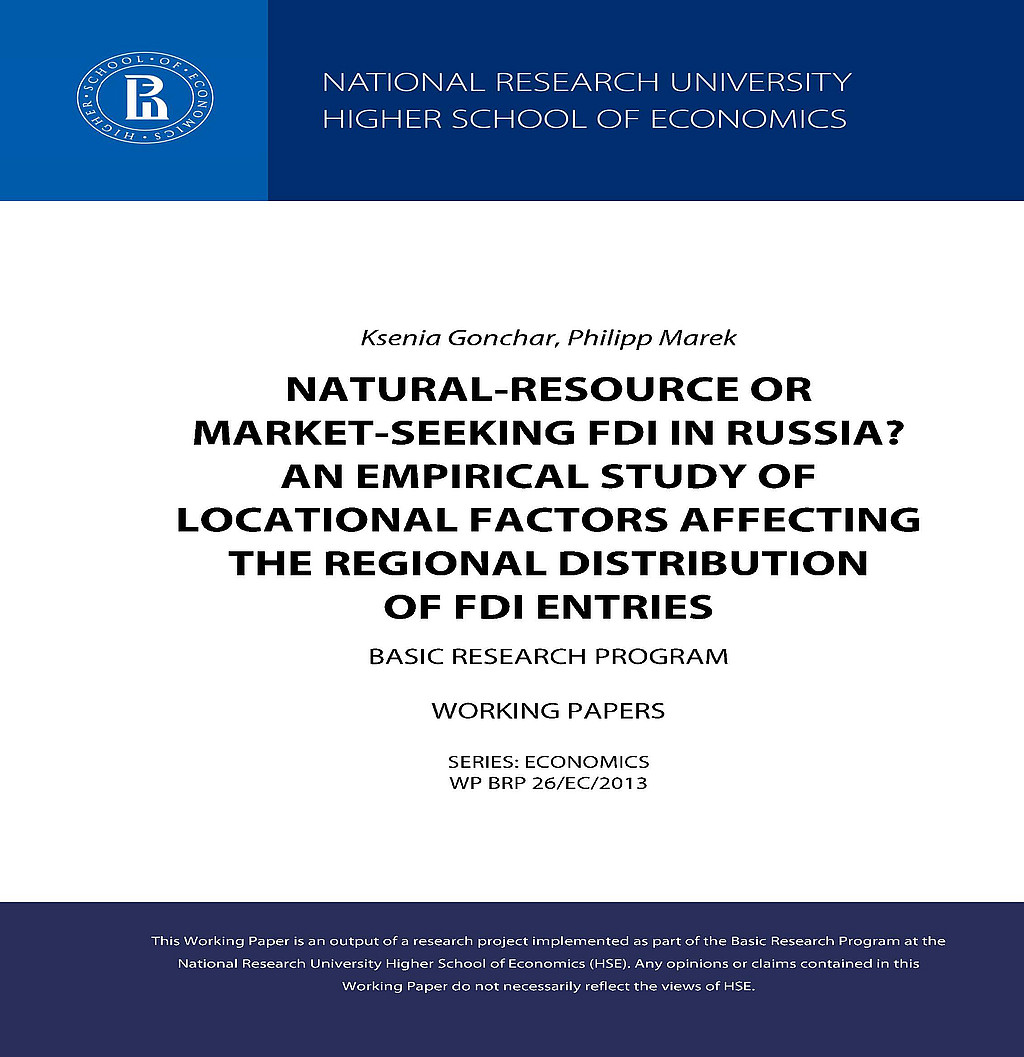
Natural-resource or Market-seeking FDI in Russia? An Empirical Study of Locational Factors Affecting the Regional Distribution of FDI Entries
This paper conducts an empirical study of the factors that affect the spatial distribution of foreign direct investment (FDI) across regions in Russia; in particular, this paper is concerned with those regions that are endowed with natural resources and market-related benefits. Our analysis employs data on Russian firms with a foreign investor during the 2000-2009 period and linked regional statistics in the conditional logit model. The main findings are threefold. First, we conclude that one theory alone is not able to explain the geographical pattern of foreign investments in Russia. A combination of determinants is at work; market-related factors and the availability of natural resources are important factors in attracting FDI. The relative importance of natural resources seems to grow over time, despite shocks associated with events such as the Yukos trial. Second, existing agglomeration economies encourage foreign investors by means of forces generated simultaneously by sector-specific and inter-sectoral externalities. Third, the findings imply that service-oriented FDI co-locates with extraction industries in resource-endowed regions. The results are robust when Moscow is excluded and for subsamples including only Greenfield investments or both Greenfield investments and mergers and acquisitions (M&A).





